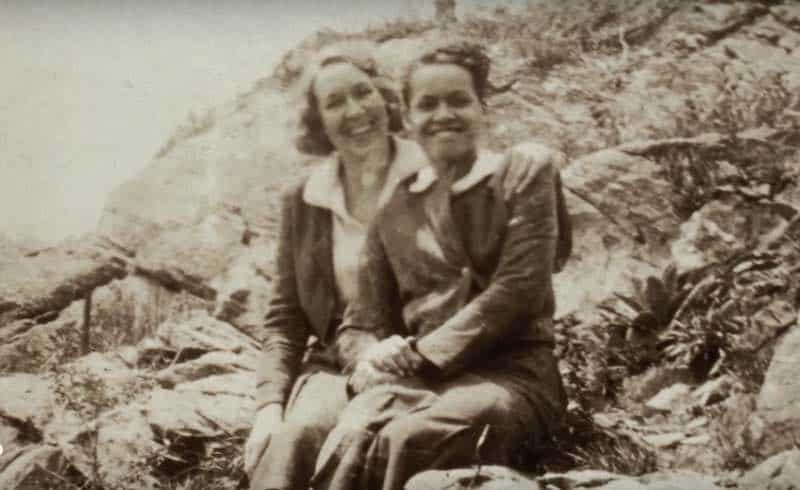My Name is Pauli Murray is a revelation. I was today years old when I found out how much influence she/they (more on gender in a bit) had on American life and on women and people of color. She was a trailblazer, a fighter, a visionary, a poet, a lawyer, a priest. Everyone should watch this documentary. It’s streaming on Prime Video.
My Name is Pauli Murray is a typical documentary. Archival footage, interviews, and contemporary reflections on her life and importance make up the story. One of the contemporary interviews was with Patricia Bell-Scott, who wrote a book about Murray’s relationship with Eleanor Roosevelt called The Firebrand and the First Lady: Portrait of a Friendship: Pauli Murray, Eleanor Roosevelt, and the Struggle for Social Justice (affiliate link).
Murray had a habit of writing what she called hot letters to people in power, from Presidents on down. The hot letters were about injustices that needed change. Eleanor Roosevelt was one who responded.
Murray was born in 1910 and died in 1985. By the 1930s she was already challenging Jim Crow laws, or as she called them in her case, Jane Crow laws. One of her first fights, long before Rosa Parks became a well known name, was to refuse to sit in the back of a bus.
Julie Cohen and Betsy West, who also directed RBG, directed this doc. Both are inspiring stories about civil rights, women’s rights, and long-range influencers on the course of America. Pauli Murray’s story is also about race and gender identity.

Murray was definitely nonbinary and possibly transgender. If she were alive now, nongendered pronouns such as they/them would probably be used. In her lifetime, she/her is what was used and that’s what I’m using here.

According to Wikipedia, Murray married a man briefly. That isn’t mentioned in the film. The film describes her relationships with women. Her personal life was kept very private, even in her autobiography, Song in a Weary Throat: Memoir of an American Pilgrimage. (affiliate link) I’m definitely going to read this book.
Murray did some brilliant things, years before anyone else was ready to deal with them or accept them. When they finally reached the mainstream, other people got the credit for her ideas. Here are a few:
- First African-American woman to be ordained as an Episcopal priest
- Graduated with a law degree from Howard University. She was at the top of her class and should have been admitted to Harvard law because of that, but was refused because of her gender.
- Went to UC Berkeley instead and later became the first Black woman to receive a law degree from Yale.
- Co-founded National Organization of Women
- Originated the idea that the 14th Amendment applied to discrimination on the basis of sex that RBG famously used later (with credit to Murray).
She also wrote deeply meaningful poetry and another book about her grandparents struggles called Proud Shoes: The Story of an American Family. (affiliate link) One of the most touching things about the film was various people reciting some of her poetry.
A big thank you to Julie Cohen and Betsy West for bringing Pauli Murray forward into the general culture. It shouldn’t only be law professors and LGBTQ+ and transgender historians who know about Pauli Murray. More people need to know about her life and achievements because her life and achievements affect all our lives.

Take a look at the trailer.
I hope you take the time to watch this one.

Leave a Reply